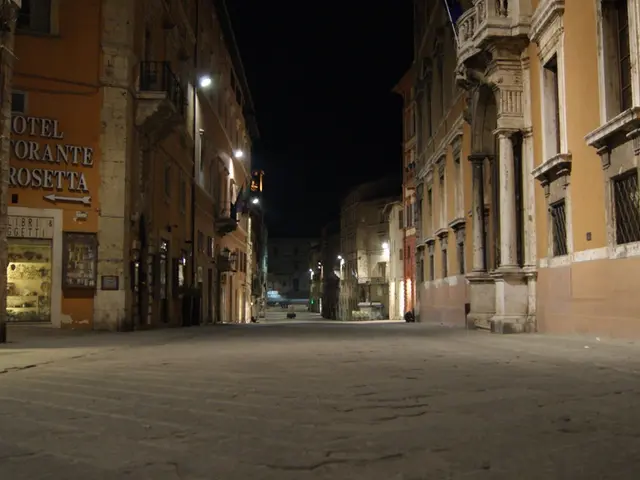Tussle in Hamm: Farmer Challenging RWE Over Land Dispute - Farmer's Victory over RWE in Hamm: Can it Be Sustained?
Small farmer Saúl Luciano Lliuya from Huaraz, Peru, has seen his home threatened by melting glaciers and the potential for catastrophic floods. To address this, he filed a lawsuit against German energy giant RWE in 2015, making the case a closely watched test for holding large emitters liable for specific climate damages. After more than a decade of legal proceedings, the Higher Regional Court in Hamm is set to deliver its verdict on Wednesday.
Who is Saúl Luciano Lliuya?
A 44-year-old resident of the Peruvian Andean town, Lliuya tends his small fields where he grows potatoes, corn, and quinoa. Having worked as a mountain guide for years, he has a keen understanding of the local glaciers, particularly concerned about the Palcacocha glacial lake due to its growing water volume and ensuing risk.
Lliuya's Pursuit Against RWE
In this civil lawsuit, the farmer seeks funding for protective measures against a possible flood wave from the Palcacocha glacial lake, alleging RWE bears co-responsibility for greenhouse gas emissions. Experts at the University of Oxford calculated that RWE is responsible for at least 0.47 percent of global CO2 emissions and is among the world's top 100 climate polluters historically. The environmental organization Germanwatch supports Lliuya's lawsuit.
RWE's Response
The Essen-based energy company maintains that the lawsuit is legally inadmissible. They argue that climate change is a global issue caused by multiple contributors, making it legally untenable to hold individual companies responsible for global impacts. A spokesperson for RWE recently stated that if such a claim existed under German law, every car driver could also be held liable. The company advocates for state and international measures to tackle climate change, not the courts.
Trial Progress
The Lliuya vs. RWE model case has been ongoing for over a decade. The District Court of Essen initially dismissed the civil lawsuit, but the Higher Regional Court of Hamm allowed the proceedings in 2017, signaling that German companies can be held accountable for global climate damages. German judges and court-appointed experts visited Huaraz in the spring of 2023 to gather evidence, considering this a first for the German judiciary. Two experts presented their findings in an oral hearing at the OLG in Hamm in mid-March. They downplayed Lliuya's concerns, estimating a potential flood's probability at circa 1 percent within the next 30 years, insufficient to damage his house's structure. Lliuya's side criticized the report as incomplete and claims that it underestimates the threats from thawing permafrost and possible rockslides.
Legal Precedent and Future Implications
While the chances of a favorable verdict for Lliuya are considered low, the court's ruling would establish a groundbreaking precedent for future climate litigation if RWE were found liable. This would open the door to similar lawsuits against major energy companies, potentially causing share price declines. To prevent thousands of lawsuits against German companies, the government would likely have to intervene. Despite the slim chances, the Peruvian farmer views the litigation as a success, as it has drawn attention to his plight and the impact of climate change on his community.
- Saúl Luciano Lliuya, a 44-year-old resident from the Peruvian Andean town, has a background in mountain guiding, which allows him to understand the local glaciers and their potential impact.
- In 2015, Lliuya filed a lawsuit against German energy giant RWE, seeking funds for protective measures against potential floods from the Palcacocha glacial lake. He argues that RWE, as a significant contributor to global CO2 emissions, bears co-responsibility for these emissions.
- The trial progressed with the Higher Regional Court of Hamm allowing the proceedings in 2017, marking a significant step in determining whether German companies can be held accountable for global climate damages.
- Regardless of the verdict's outcome, the Lliuya vs. RWE case could establish a legal precedent for future climate litigation, potentially leading to an influx of lawsuits against major energy companies and compelling government intervention if found liable.








